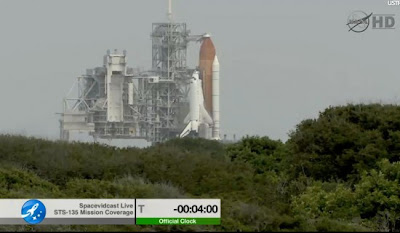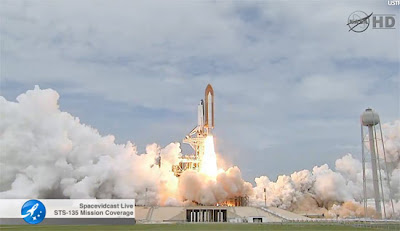Scientists don’t really wear white lab coats. They usually don’t stand in front of old cabinets full of glass jars and beakers containing a rainbow of colored liquids. Unless someone has had an unfortunate bunsen burner accident it is unlikely that there is smoke wafting through the lab, or beakers bubbling over with a frothy white foam. If these images are what come to mind when you think of scientist, you need an update. It isn’t your fault, either.
Taking pictures or video to accompany my stories, I’ve had to ask myself how can I make a shot look more…sciencey? In the media we do a great disservice to scientists every time we stick them in the white coat peering into a microscope. Not that scientists don’t peer into microscopes, they do. But the stereotype has been allowed to run roughshod over every scientific discipline to the point where people barely recognize scientists who don’t fit the stereotype. Most scientists don’t fit the stereotype. But I’ve still dragged interviewees around a building until I find a suitable science looking backdrop. We all do it, and we need to stop.
Could you name a scientist? Seriously, do you know one? Heard of one? A single one? Can you name anyone actively engaged in research in the United States or around the globe? Do you realize that billions of your tax dollars pay for research, and you may very well not be able to name a single scientist other than your local meteorologist, or if you’re lucky (and a child of my generation) Bill Nye the Science Guy? I’m not trying to scold anyone here. I’m also not playing high and mighty. I can’t really name any importance finance and economic people, and they are important. So please don’t take this as me preaching. All of us could stand to be a little more aware of the fields we don’t work in directly. I’m plugging science and scientists here because, well, thats what I do. If someone wants to school me in finance, please do. I could use the lessons.
Anyway, I realize that not everyone loves science, but a huge chunk of money is devoted to research each year, don’t you want to know who gets it? The name Francis Collins should mean something to you. It may or may not, but for those who don’t know he is the Director of the National Institutes of Health. The NIH is the largest research funding organization in the United States. It has a fiscal year 2012 budget of more than $31 billion. But the people that are actually getting this money are largely out of the public eye. Why is that? I don’t have an answer exactly, but I can promise you it isn’t because scientists are boring.
We need to change the way we think about scientists. This is already happening in the science community itself where there are a lot of scientists who don’t want to be seen as lame. Even Collins has participated in some stereotype busting by posing for a magazine spread with Joe Perry from the band Aerosmith a few years back (Collins does play guitar himself) for a project called Rock Stars of Science. But even the best intentioned stereotype busting isn’t going to go anywhere if the only people paying attention to it are other scientists, science writers, and members of the public who already like science. We need to get the message to the people who still picture Doc Brown from Back to the Future when they think of a scientist. That being said, there are a lot of people involved with and working on correcting the stereotype. I wanted to take a moment to bring your attention to just one example, called I Am Science.
I Am Science started as a hashtag on Twitter (#iamscience). First suggested by marine biologist and science writer Kevin Zelnio, the hashtag was used to mark stories shared by scientists about the path they took to attaining their careers. It became obvious immediately that scientists are a wonderfully diverse group, finding their passion by any number of different paths. Scientists are people too. People with different backgrounds, and different interests. Sometimes wildly different interests, doing very different things but all of it is still science. They are all science.
I like I Am Science because it started with a Tweet, because it reflects the desire for scientists to try to share who they are failures and struggles included, and because it shatters the crazy mad scientist stereotype. To learn more about I Am Science read this wonderful post by Zelnio on Deep Sea News, check out the Tumblr he created to store all the tweets, if you are so inclined support I Am Science on Kickstarter (they’ve reached their goal, but can still use donations!) and watch this video.
The video was created by Mindy Weisberger and uses the song “Wicked Twisted Road” by Reckless Kelly. I hope all of this has inspired you to learn more about scientists. Look up people researching in the areas you find most interesting. Read their books. Attend their speeches or talks. Bust some stereotypes.





